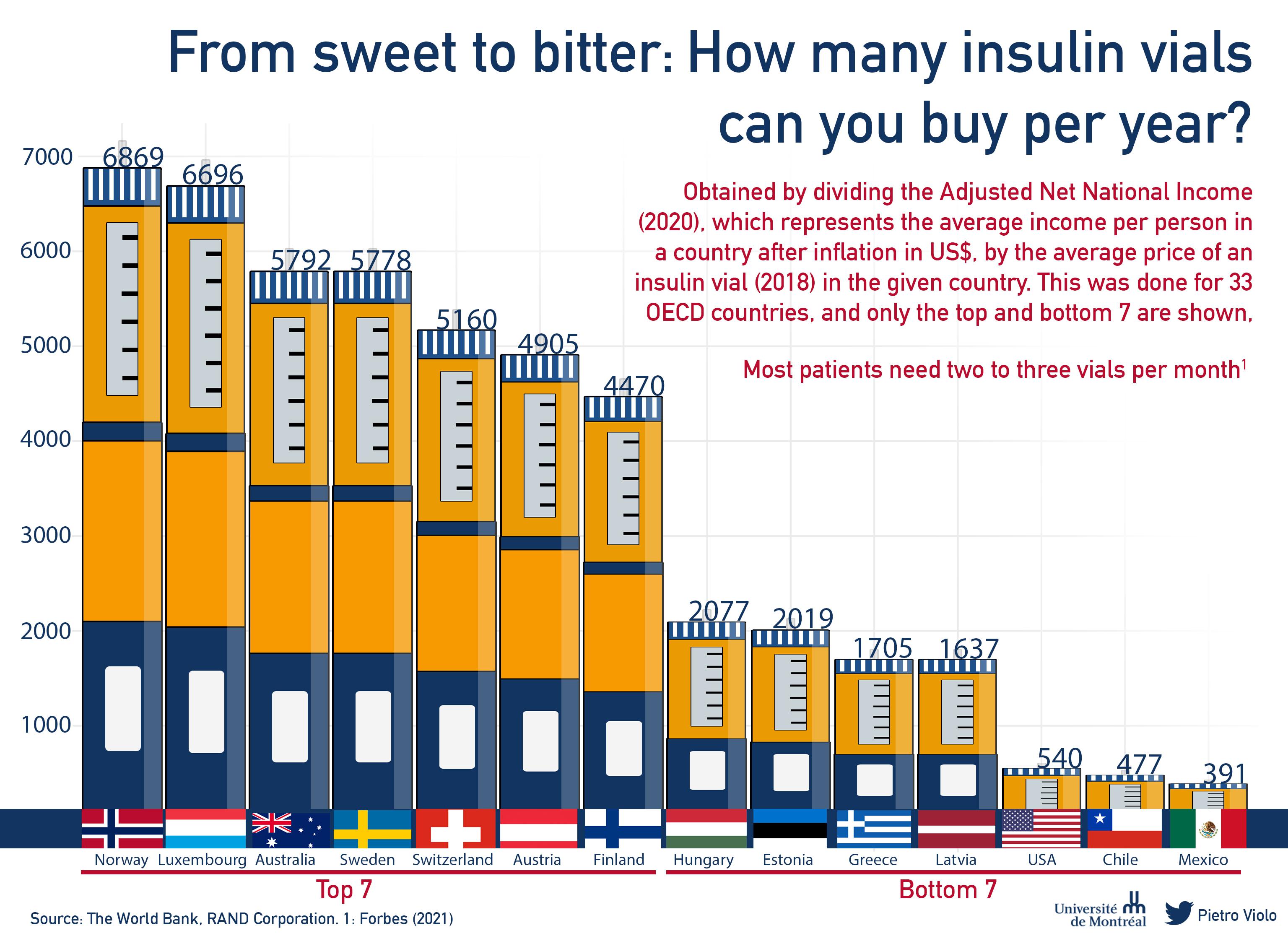Submitted by PietroViolo t3_11ejwnp in dataisbeautiful
Comments
[deleted] t1_jaegbsc wrote
[removed]
PietroViolo OP t1_jaegy4z wrote
All the data and code can be found on my Github for replication purposes.
bitswede t1_jaeidt4 wrote
Sweden, and I believe most other European countries, have a ceiling for how much you have to pay per year for prescribed medicines. In Sweden the limit is around 575€ per year with a 50% rebate kicking in at 120€. This rebate gradually increases to 90% which it hits at 415€.
Edit: misread the infographic i used. Actual ceiling is 235€ out of pocket, after that your prescriptions are filled at no cost to you.
colouredinthelines t1_jaeihmc wrote
Certainly patents aren’t a factor since Banting and Best sold the patent for insulin to the university of Toronto for $1.
floralvas t1_jaeiryf wrote
And insulin is totally free of you have diabetes which is nice!
goodluckonyourexams t1_jaejjpr wrote
"Adjusted net national income is GNI minus consumption of fixed capital and natural resources depletion."
why not use average income?
goodluckonyourexams t1_jaek1lc wrote
Average Income is also known as Per-capita income. It measures the average income earned per person in a given area in specified year. National Income is the sum total of all the goods and services produced in a country along with the income obtained from all foreign countries.
TrainDriverDave t1_jaekryi wrote
In the UK, prescriptions are free to diabetics, so I'm a bit surprised you have a non-zero unit cost. Is your graph the cost to patients, or to the health service?
11160704 t1_jaeqsfq wrote
It sounds like the market price in the given country.
cleaning_my_room_ t1_jaetkqj wrote
Are these the same type of insulin? Somehow I expect the answer to be no.
I have heard doctors say that the type of insulin US health insurers cover is massively more expensive than other types that are available in generic form and that have statistically similar clinical outcomes for patients.
The expensive kind keeps blood glucose in a narrower range, which is how they convinced insurers to require it, but clinical studies have shown no improvement in patient outcomes over the cheaper insulin.

Ciarrai_IRL t1_jaega7t wrote
Something doesn't seem to add up here. I'd love to see the math and cost per vial assumptions by country.